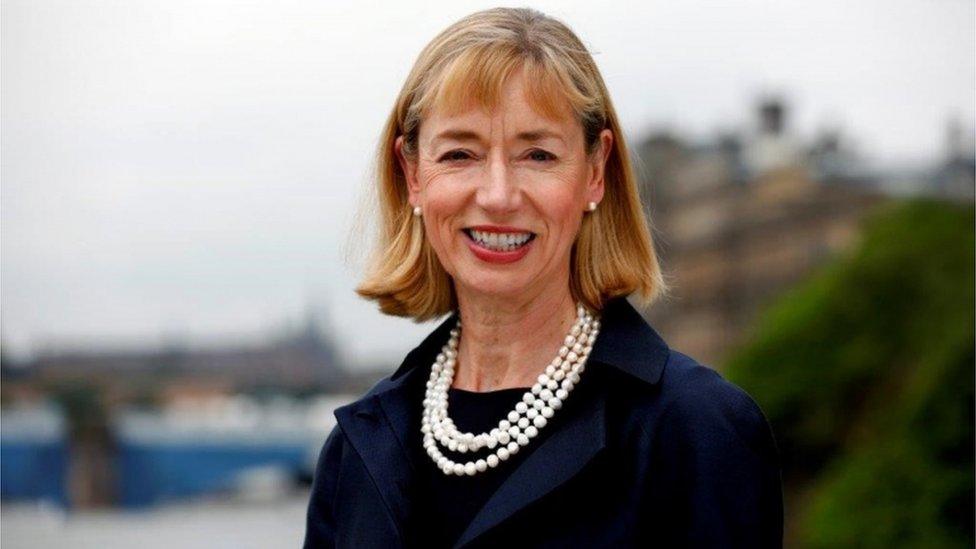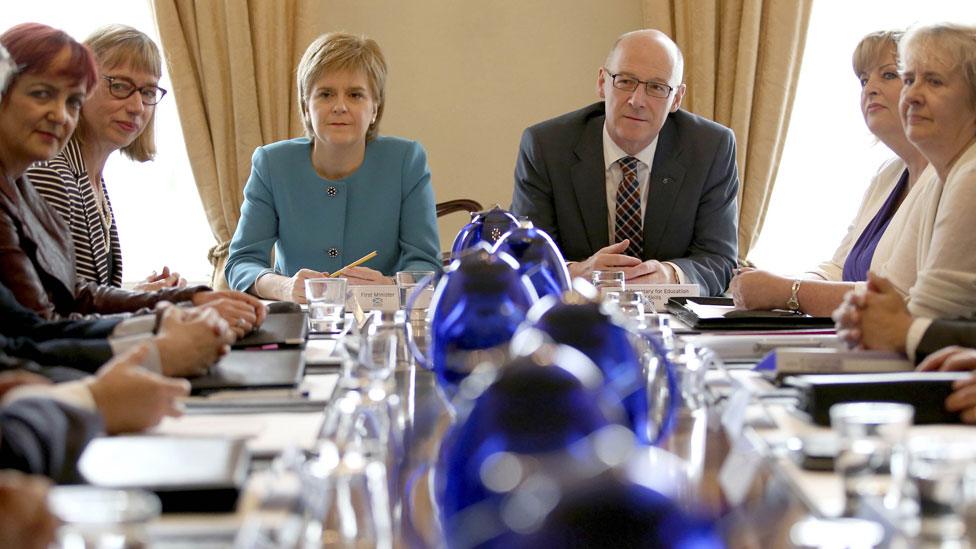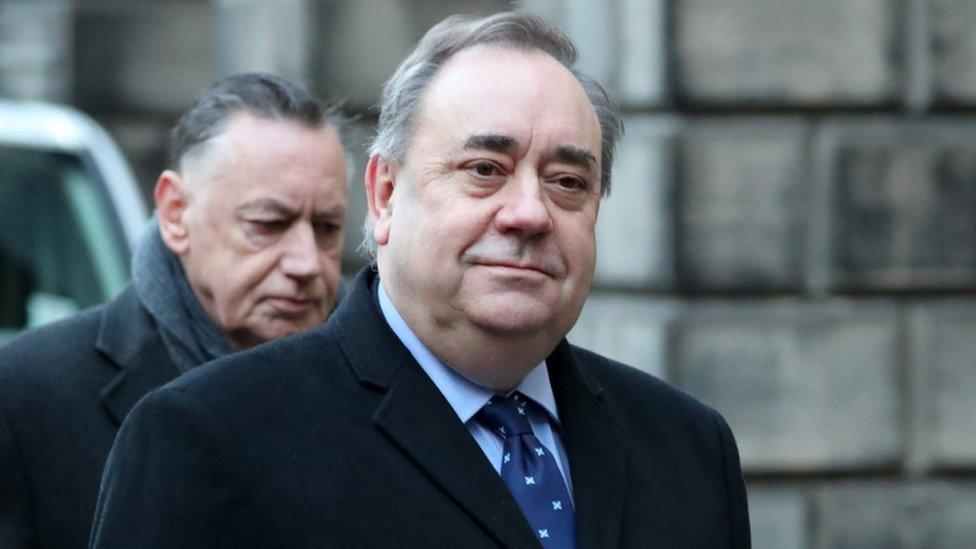Who is Leslie Evans, permanent secretary to the Scottish government?
- Published

The Scottish government's permanent secretary, Leslie Evans, apologised for the failure to properly apply the procedures
Scotland's top civil servant Leslie Evans is to be quizzed by MSPs after the Scottish government accepted it had acted unlawfully while investigating sexual harassment claims against Alex Salmond. But who is Ms Evans?

A career public servant, Leslie Evans was the first woman to be appointed permanent secretary to the Scottish government.
Five years into the role, she has been at the side of First Minister Nicola Sturgeon ever since, advising on big issues such as Brexit.
Without question, the job she performs is key to the smooth running of government.
Ms Evans sits in Scottish cabinet meetings and is in charge of more than 5,000 civil servants.
The permanent secretary, and her colleagues, are tasked with supporting and developing Scottish government policies and are part of the UK-wide Civil Service.
'Collaborative leadership'
The 60-year-old, who earns in the region of £165,000 per annum, was brought up in England but has lived in Scotland since 1985 and has worked in a string of local government roles in Stirling and Edinburgh.
She was director general of learning and justice when in 2015 she was appointed permanent secretary, using the opportunity to take a more public facing approach than her predecessors, especially on social media.
A keen supporter of getting more women into senior public sector roles, Ms Evans has written a number of pieces on the government's work, external and reflected on her own personal experiences.
In one of her regular, chatty in style, updates to civil servants she wrote about the centenary of suffrage and opened up about a family connection to the fight for women to be given the vote.
She outlined the tale of her grandmother who witnessed the death of suffragette Emily Davidson at Epsom Racecourse in 1913.
"Her story was a familiar one of the time - escaping an abusive marriage only to find herself and her children - including my mother, aged six, in the workhouse because she couldn't work full time to pay the rent and look after them," she said.
"A redoubtable woman, she had a very positive and pretty feisty approach to life, which certainly shaped mine."
Those publicly-expressed thoughts have also shed light on the role she thinks a modern civil service should have.
In one blog she recalls her address to an Oxford University gathering which outlined the need for "kindness" to play its part in "delivering public services, external, alongside other important qualities such as fairness and equality".
She went on: "Of course, we civil servants still need our professional code, with its values of objectivity, impartiality, honesty and integrity, and the skills of our craft, such as analysis, evidence, and consultation.
"But we also need tenacity, humility, self-reflection, and a commitment to work with - and invest in - long-term partnerships. Heroic leadership simply isn't going to cut it here - we need distributed, open and empowered collaborative leadership.
"This means recruiting leaders who can see beyond their own immediate and institutional interests to the wider cause.
"And it means delivering government in a highly accessible way - sticking closer to people and communities, and listening to what they are telling us, especially the voices of those who are not traditionally heard."

Leslie Evans, seated on the left of Nicola Sturgeon, two days after the EU referendum which signalled the start of Brexit
Her role in government in Scotland has so far been key, not least in the hours that followed the outcome of the 2016 EU referendum result.
Ms Evans worked closely with Ms Sturgeon in her Bute House residence ahead of a news conference - the day after the vote - where the first minister was to declare that a second independence referendum was "highly likely".
Since then Ms Evans has had to tread a careful path on the issue of Brexit given the political differences between the UK and Scottish governments.
She admitted in a blog that she had to give a "frank presentation on behalf of the three devolved administrations about our experience of working with [the UK government] on EU exit and the challenges and opportunities ahead".
'Duty of care to staff'
In 2018 Ms Evans was praised for opening up about working through "several tough and very stressful episodes" in the past, external, and revealed she had seen a health professional at one point.
Despite this very open and relaxed style of communicating, she is not a well-known public figure.
However, her name is a little better known because of the Alex Salmond inquiry.
When it emerged he had been accused of harassment by two members of staff, Mr Salmond revealed he had complained to Ms Evans - a member of the Civil Service board - that the complaints procedure was "unjust" and "unlawful".
After the government conceded that the process had been flawed on the eve of a judicial review court case, Mr Salmond voiced his discontent with Ms Evans, saying she should consider her position as permanent secretary.
Public apology
Ms Evans made a public apology "to all involved", with the government ultimately having to pay the former first minister more than £500,000 in costs.
However, there was no hint of a resignation. Her statement went on, external: "My priority remains the duty of care to my staff, including anyone in the organisation who brings forward any concerns about inappropriate conduct, regardless of the identity or seniority of the individual complained about."
Now that Mr Salmond has also been acquitted of criminal charges of sexual harassment, an inquiry is beginning into the failure of the government's processes and the costly collapse of the judicial review case.
Ms Evans and her boss, Ms Sturgeon, have continued to stand behind the complaints handling system they signed off on in late 2017, saying it was let down in the case of Mr Salmond by "a single procedural flaw".
Both will now have to defend it in front of a Holyrood committee, as MSPs seek to get to the bottom of what went wrong.
- Published8 January 2019
